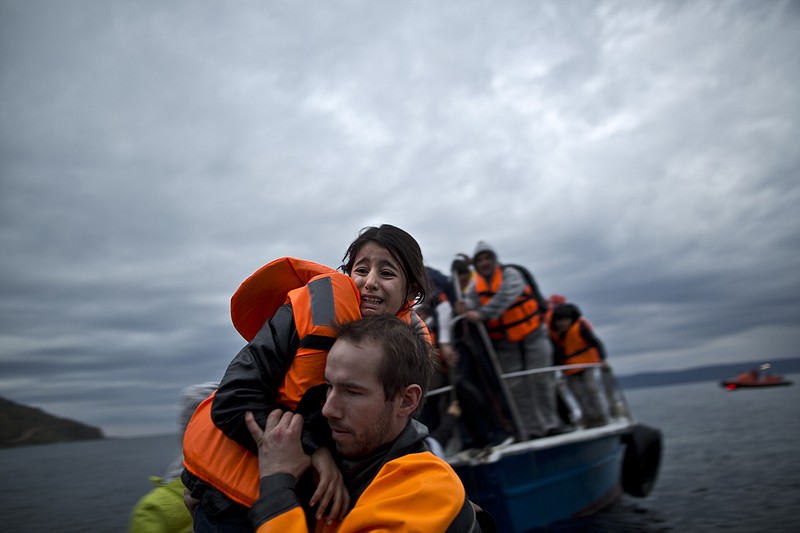Three days after some Missouri lawmakers spent four hours questioning state officials about refugee resettlement costs, representatives of several faith groups told reporters the state should be welcoming people from other nations.
"We're here because those of us in this room believe that every policy, and every dollar that's debated in this great hall, has a moral and spiritual dimension," First Baptist Church Pastor Doyle Sager said during a Thursday morning news conference in a Capitol hearing room.
"We are here today to talk about the moral and spiritual cost of not being a state and a nation which welcomes strangers - because we believe there's a cost to that, as well."
The Rev. John Bennett, a member of "Missouri Faith Voices" and a retired Christian Church (Disciples of Christ) minister, noted Pope Francis reminded people during his recent U.S. visit "the Son of God came into this world as a homeless person," and the pope "would surely remind us now that the Holy Family were refugees and the human family is one - the tragedy in San Bernardino notwithstanding."
Mike Hoey, the Missouri Catholic Conference's executive director, was one of several speakers acknowledging Americans' concerns with safety.
"It's tough to convince people to bring in refugees from Syria," he said. "Our challenge is to weigh our security concerns with our nation's tradition of taking in immigrants and refugees.
"We have had refugees coming for many years, and they settle peaceably in this country, in our neighborhoods and our communities."
Hoey repeated a statement Missouri's four Roman Catholic bishops made a couple of weeks ago.
"Even if you had a police-state, you can't guarantee absolute safety," he said. "And many of these mass shootings - most of them in this country - have nothing to do with international terrorists."
Among the panel of speakers at the conference was an immigrant whose family had unsuccessfully tried to emigrate to the U.S. before World War II had begun.
French-born Aline Kultgen was 9 when she came to the United States in June 1947 with her aunt and uncle. Her mother died before World War II began.
Her father, a Palestine-born Jew, fought with the French resistance movement until he was arrested by the Gestapo in August 1944, then executed 19 days later.
"The fact that we Americans don't always live up to our ideals also means that we often do," Kultgen said. "This is a good time to do so - let us fully express our American generosity and compassion. ...
"The whole world is facing the savagery and hatred of ISIS, and our whole world needs to pitch in and help its most-needy victims - let's welcome the refugees."
The Rev. Jeanie McGowan, retired "singles" minister at First Baptist, added: "We are no doubt living in a time of fear - fearful of terrorists, fearful of crowds.
"Sometimes, we allow those fears to erode the basic, decent values that we've been taught in our churches, synagogues and mosques - especially those that demand that we extend hospitality to strangers and sojourners."
Several lawmakers said during Monday's hearings they don't trust the federal government to deliver on its promises of a detailed vetting process before a refugee enters the country.
But, the Rev. Larry Brown, a retired Methodist minister who remains active with Church World Service, said: "Look at the track record of what we've done - many of us can testify to our positive experiences.
"I've worked with Bosnian refugees and Sierra Leone refugees."
When looking at the recent history of violence in the U.S., Brown added: "How many resettled refugees have you found in the United States recently who have committed these atrocious acts of violence?
"The vetting process has worked." Bennett ended the 50-minute news conference with a reminder that Micah, a Jewish prophet, said: ""Do justice, love mercy and walk humbly with God' - which means to walk in solidarity with all who hurt.
"That's what we do - and we'll keep doing it."

